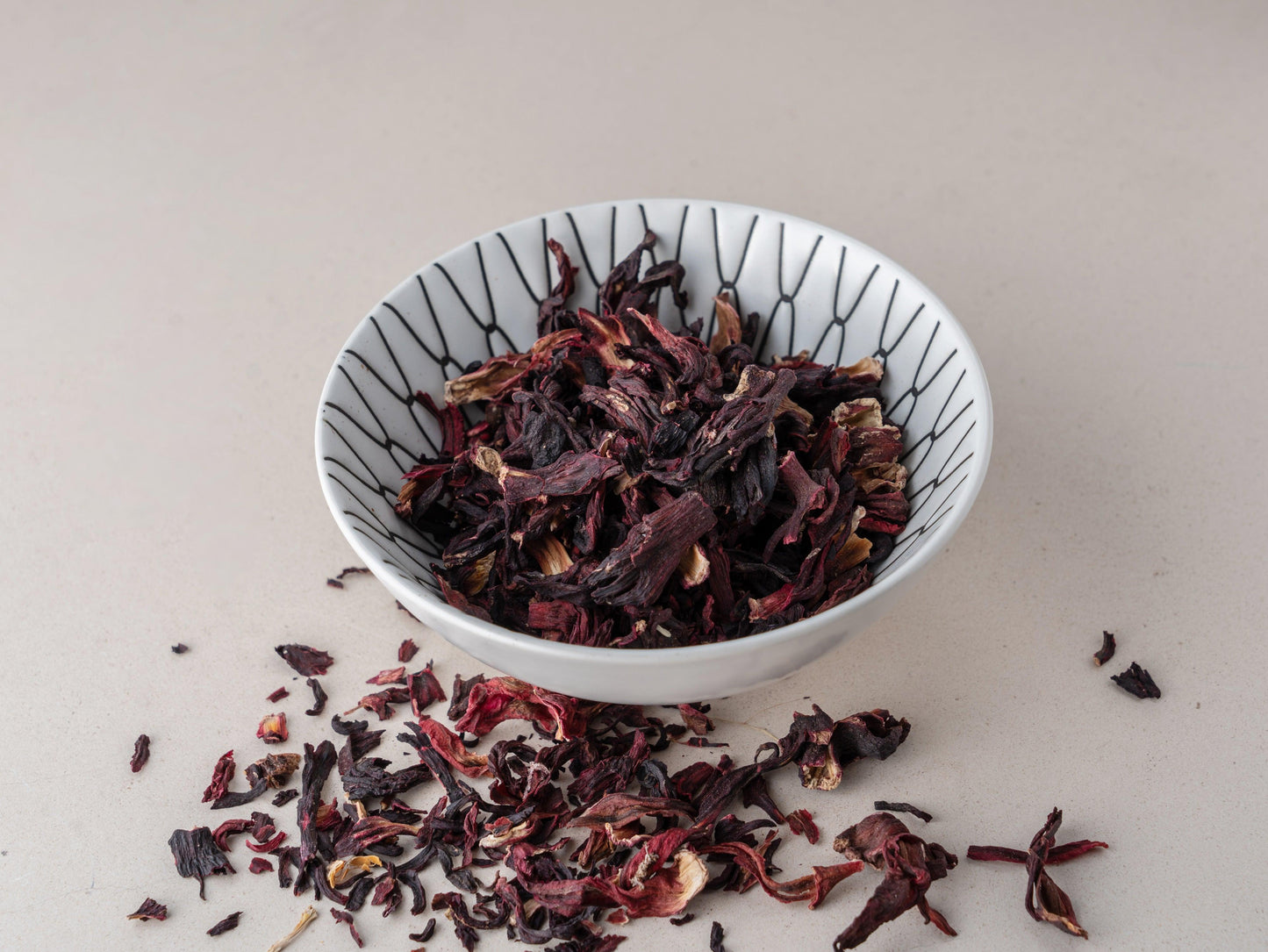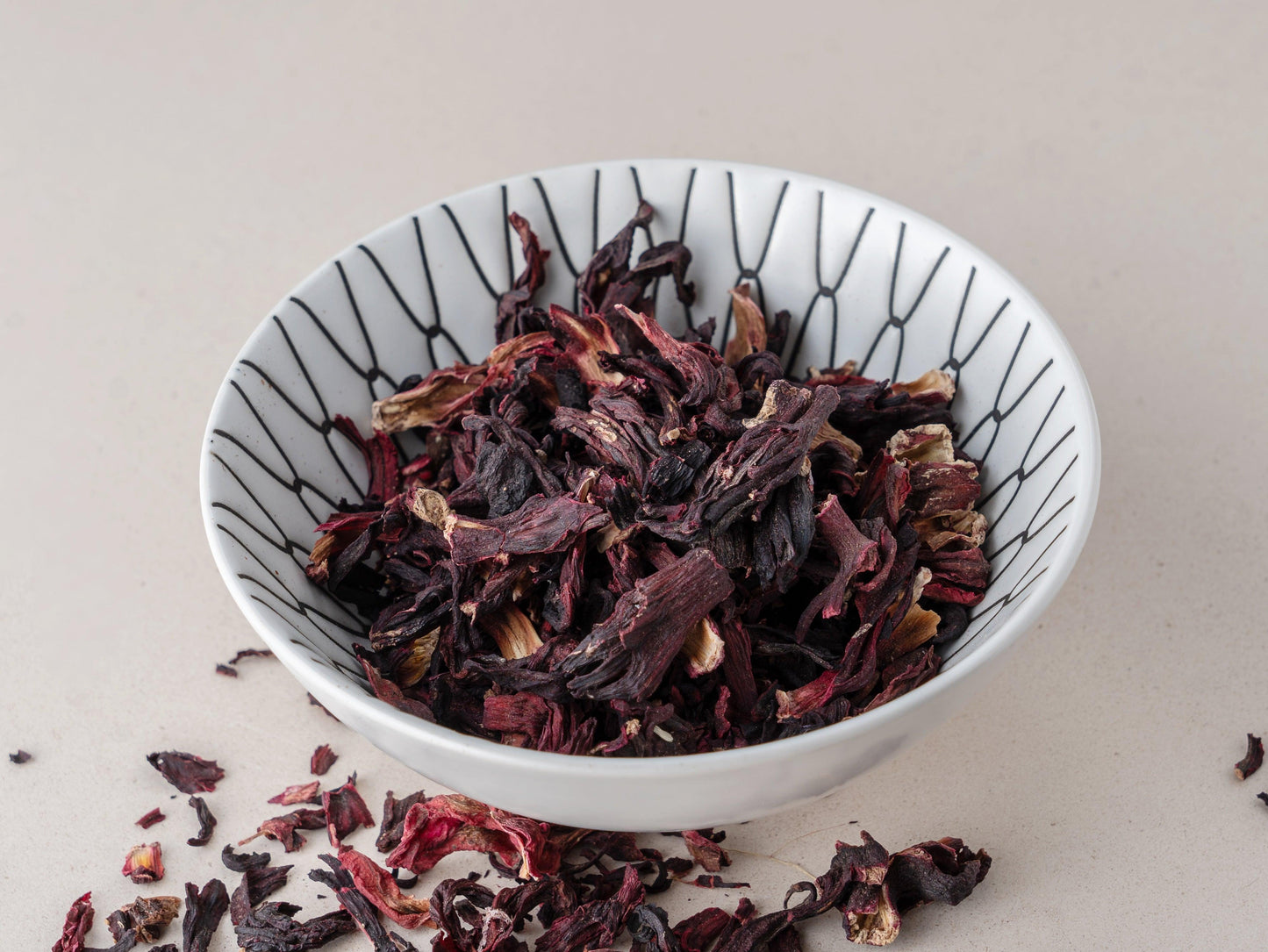History and Culture of Hibiscus Tea
Hibiscus Tea, enjoyed in many cultures around the world, has a rich history that dates back centuries. Originally from Africa, the hibiscus enchanted people with its vibrant flowers, being incorporated into the tradition of preparing infusions that captivate the senses.
Unmistakable flavor and texture
Each cup of hibiscus tea is a celebration of intense flavors and silky texture. Hibiscus flowers offer a unique taste experience, with slightly citrus notes and a softly sweet touch. The red hue of the infusion is a visual invitation to an unforgettable sensory journey.
Nutritional Benefits
-
Powerful Antioxidants: Hibiscus Tea is rich in antioxidants, such as flavonoids, which fight free radicals, strengthening the immune system.
-
Blood pressure control: Studies indicate that regular consumption of Hibiscus Tea can contribute to reducing blood pressure, promoting cardiovascular health.
-
Anti-inflammatory Properties: The anti-inflammatory properties of hibiscus can help reduce inflammation in the body, contributing to overall well-being.
-
Healthy Hydration: In addition to the flavor, Hibiscus Tea is an excellent option for staying hydrated, being a delicious alternative to conventional drinks.
Versatility in Cooking
-
Jellies and Jams: Use the infusion to create jellies and jams, adding a floral touch to toast, cakes and desserts.
-
Refreshing Ice Creams: Incorporate Hibiscus Tea into homemade ice cream, providing a cold and invigorating experience.
-
Sauces and Marinades: Try using tea as a base for sauces and marinades, giving a unique flavor to meat, poultry and savory dishes.
-
Mocktails and Cocktails: Create non-alcoholic drinks or lush cocktails by incorporating hibiscus tea for a refreshing and sophisticated touch.








